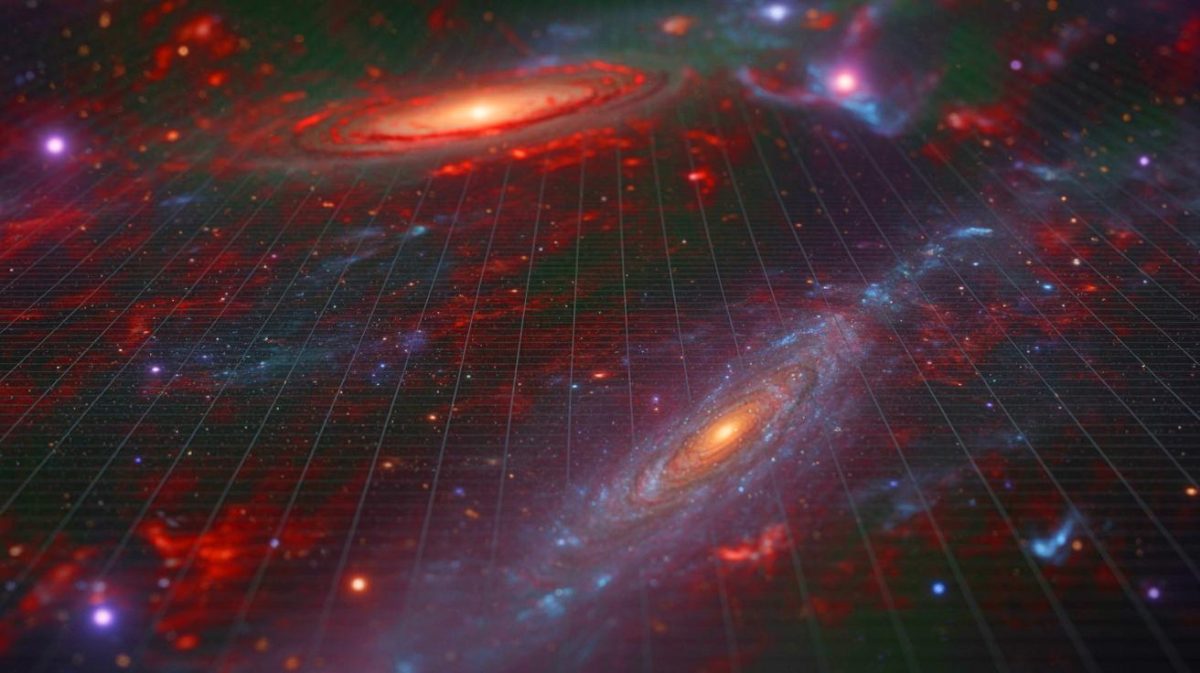| IN A NUTSHELL |
|
In recent years, the line between science and science fiction has become increasingly blurred, with theories challenging our conventional understanding of the universe. A particularly intriguing proposition comes from Melvin Vopson, a physicist at the University of Portsmouth. Vopson suggests a revolutionary interpretation of gravity that aligns with the concept of a simulated universe. According to his theory, gravity may not be a mere force of attraction but instead a result of the universe behaving like a vast computer algorithm. This bold idea opens up numerous questions about the nature of reality and our place within it.
The Universe as a Giant Computer
Melvin Vopson proposes that the universe might operate like a massive computer, with gravity acting as an algorithm to minimize clutter. He describes gravity as a mechanism that the universe uses to organize itself, much like how computers compress data to optimize efficiency. This concept is based on Vopson’s second law of the dynamics of information, which suggests that the entropy of any system remains constant or increases over time. By drawing parallels between gravity and data compression, Vopson presents a new way to think about the forces that govern our universe.
This theory is a departure from traditional views of gravity as merely an attractive force. Instead, it portrays gravity as a process akin to a computer trying to save space and enhance performance. Such a radical perspective challenges us to reconsider our understanding of the universe and consider the possibility that our reality could be a simulated construction.
Information and Quantum Mechanics
Vopson’s ideas are further supported by his thoughts on information storage within the universe’s fundamental elements. He argues that elementary cells, the smallest possible volumes in quantum mechanics, store information that dictates the positions of matter within the simulation. This concept mirrors how digital simulations and virtual reality applications are designed, where each cell can contain multiple particles, akin to a computer minimizing informational content.
From an informational perspective, it is more efficient to track and calculate the position and momentum of a single object in space rather than multiple objects. This suggests that gravitational attraction might serve as an optimization mechanism within a computational process aimed at compressing information. Such insights not only advance our understanding of physics but also push the boundaries of how we perceive reality.
Implications for Our Understanding of Reality
The implications of Vopson’s theory are profound, extending beyond theoretical physics into philosophical realms. If the universe functions like a computer, it raises questions about the nature of consciousness and our role as observers within this system. Are we simply part of a sophisticated simulation, and if so, what does this mean for concepts like free will and destiny?
Additionally, this theory could transform how we approach scientific research and technological development. A universe governed by computational principles might offer new ways to harness and manipulate the laws of physics, leading to breakthroughs in computing, energy, and beyond. As researchers delve deeper into these possibilities, the relationship between science and technology continues to evolve, reshaping our future.
The Search for Missing Matter
In conjunction with Vopson’s theories, another intriguing development in the field of astronomy involves the mysterious “missing” half of the universe. Astronomers have long been puzzled by the apparent absence of a significant portion of cosmic matter. Recent discoveries suggest that this missing matter may have been found, which could provide further evidence for the universe’s complex and possibly simulated nature.
The ongoing search for this missing matter and its potential discovery underscores the dynamic and ever-evolving nature of scientific inquiry. As we gather more information, each piece of evidence contributes to a more comprehensive understanding of the universe and its underlying mechanisms. Whether or not these findings support Vopson’s theories, they undoubtedly add layers of intrigue and curiosity to the scientific community.
As we explore these groundbreaking ideas, we are left to ponder the true nature of our existence. Are we merely characters in an elaborate cosmic simulation, or is there more to our reality than meets the eye? As science continues to push the boundaries of what is possible, we must ask ourselves: How will these revelations shape our understanding of the universe and our place within it?
Did you like it? 4.4/5 (25)







C’est fascinant ! Mais comment Vopson explique-t-il la sensation de libre arbitre dans une simulation ? 🤔
Si le monde est une simulation, est-ce qu’on peut le pirater ? Juste une idée ! 😄
Wow, cela pourrait totalement changer notre façon de voir les sciences et la technologie.
Je suis sceptique. On a entendu ce genre de théories avant, et elles n’ont jamais été prouvées.
Merci pour cet article captivant ! Je n’avais jamais pensé à la gravité de cette façon. 😊
Comment la découverte de la matière manquante s’intègre-t-elle dans cette théorie ?
Si l’univers est un programme, qui est le programmeur ?
Je me demande ce que cela signifie pour nos croyances philosophiques et religieuses.
Encore une théorie farfelue. On dirait de la science-fiction.
Une simulation ? Cela expliquerait pourquoi mes lundis matins sont toujours si difficiles ! 😅